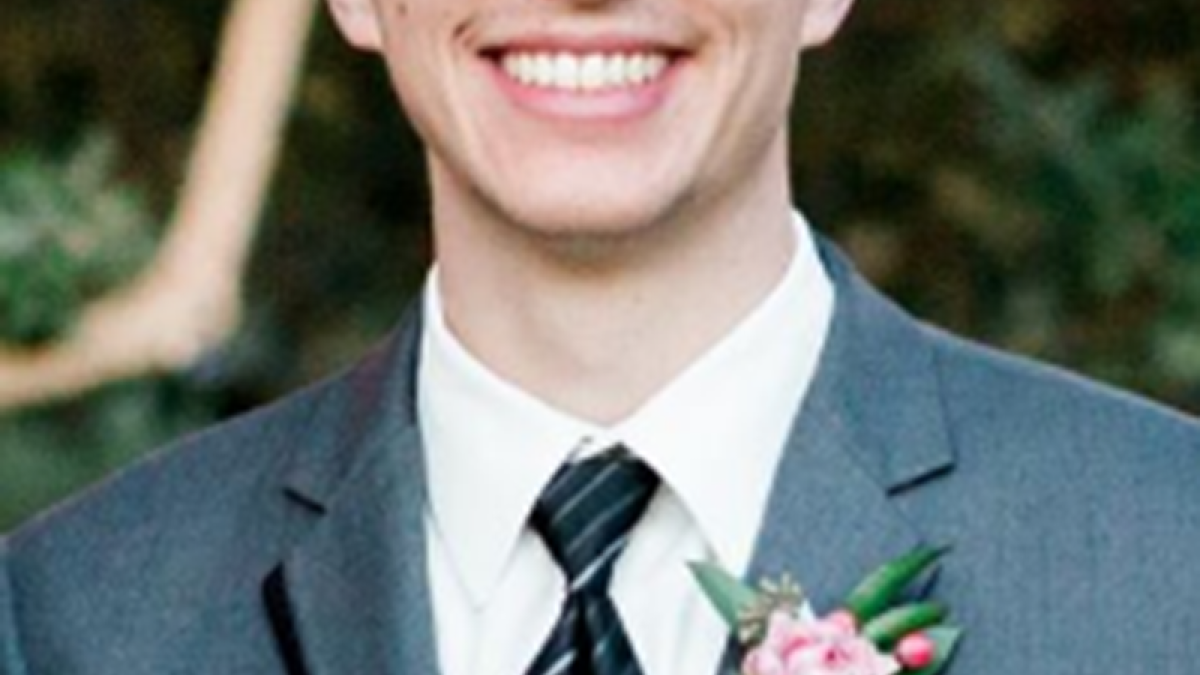Editor’s note: This is part of a series of profiles for spring 2019 commencement.
Zachary Tronstad’s most rewarding experiences at Arizona State University have been helping people and finding inspiration to make an impact through engineering.
By getting involved outside the classroom, Tronstad helped his peers as a tutor, made waves in water filtration research with the Fulton Undergraduate Research Initiative and assisted high school students in the Shonto community of the Navajo Nation to start a mountain biking team with Engineers Without Borders and Engineering Projects in Community Service.
He encourages other students to do more than study to get the most out of their Sun Devil experience.
“There are so many clubs, research opportunities and unique groups of people that you aren’t going to find anywhere else,” said Tronstad, who is graduating with a bachelor's degree in chemical engineering with a minor in materials science and engineering. “Get involved with a couple — it might actually help your grades to have something besides school to focus on, and it’ll make you a much more appealing job candidate.”
He owes his critical thinking skills and independent problem-solving skills to his FURI mentor, Matthew Green, an assistant professor of chemical engineering in the Ira A. Fulton Schools of Engineering.
“By giving me my own research project and letting me own it, I was able to develop problem-solving skills and learn how to present my findings and their importance to others,” Tronstad said.
His hard work paid off. The National Merit Scholar and New American University Scholar earned an award for best presentation materials at the 2018 Gulf Coast Undergraduate Research Symposium and an IMPACT award for his EPICS project with the Shonto community. He was also recently recognized as the Chemical Engineering Undergraduate of the Year by the School for Engineering of Matter, Transport and Energy, one of the six Fulton Schools.
In 2017, Tronstad had the opportunity to be a Summer Undergraduate Research Fellow at the National Institute of Standards and Technology in Gaithersburg, Maryland. Last year, he participated in a Research Experience for Undergraduates at Case Western Reserve University in Cleveland.
Besides flexing his engineering skills, Tronstad developed his spirituality through the Navigators, a Christian club focused on spiritual discipleship, where he was vice president and planned weekly service events and trips for the club to conduct over spring break.
Tronstad’s wife, Kristina, whom he met at church in high school and married last January, is also an ASU grad and has been a great source of support during his studies. She graduated last December and now teaches second grade in the Roosevelt School District.
After graduation, he plans to continue work with the Navigators and participate in a two-year internship with EDGE Corps. Then, he’ll get back to chemical engineering in graduate school.
Hometown: Tucson, Arizona
Tronstad's favorites
Hobby: Basketball
TV show: "Sherlock"
Sports team: Philadelphia Eagles
Last book read: "Trusting God" by Jerry Bridges
Read about other exceptional graduates of the Fulton Schools’ spring 2019 class.
More Science and technology

ASU technical innovation enables more reliable and less expensive electricity
Growing demand for electricity is pushing the energy sector to innovate faster and deploy more resources to keep the lights on…

What do a spacecraft, a skeleton and an asteroid have in common? This ASU professor
NASA’s Lucy spacecraft will probe an asteroid as it flys by it on Sunday — one with a connection to the mission name.The asteroid…

Hack like you 'meme' it
What do pepperoni pizza, cat memes and an online dojo have in common?It turns out, these are all essential elements of a great…


